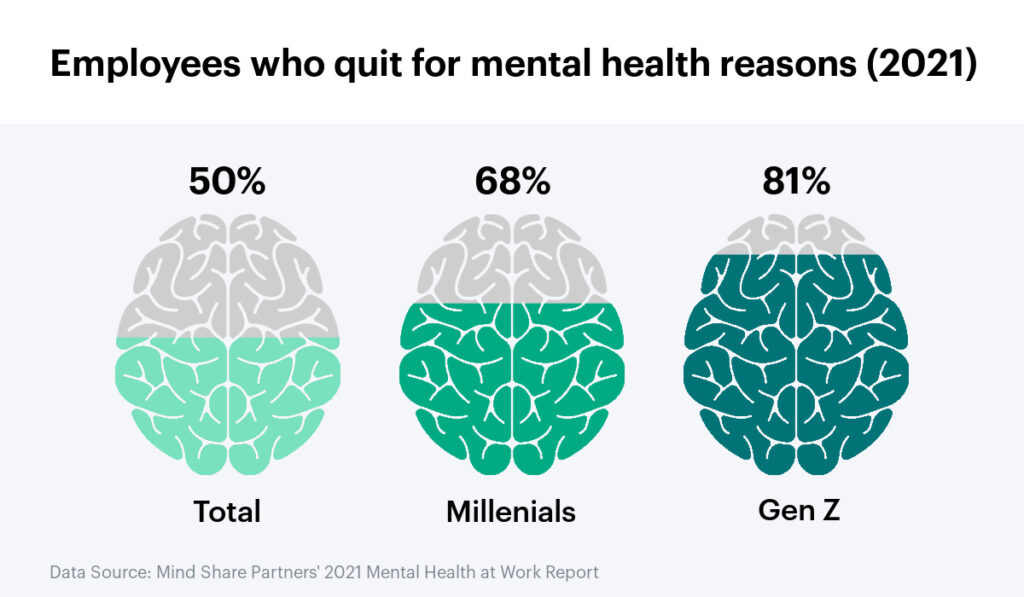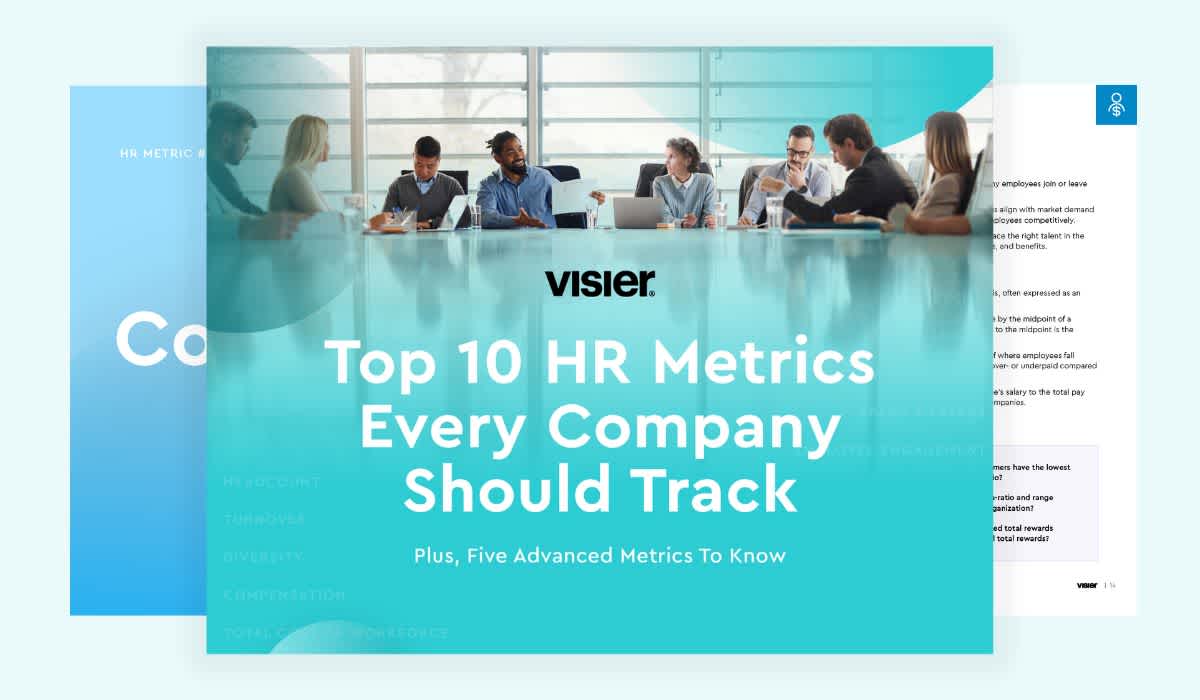5 Tips For Making Competitive Job Offers in 2022
In this hot talent market, how can employers make sure they're getting accepted offers? Here are five things job candidates want to see in a job offer.

As an aggrieved and tired workforce seeks new employment amidst the Great Resignation, recruiters and HR departments can look to competitive compensation packages to stir up job interest and fill positions.
The Great Resignation saw over 47 million people leave their jobs in 2021, with a record-setting 4.5 million quitting in November 2021 alone. While not all of these ex-employees are actively seeking new positions, the fact is that there are nearly two available job openings for every job seeker. And that makes for a very hot talent market.
A hot talent market is a competitive talent market, and that means potential employers need to think like a salesperson when courting candidates. If a candidate has gotten all the way to the offer stage, then closing the deal is the final—and perhaps most important—part of this talent acquisition sales cycle.
“If you are hiring right now, you can expect that every candidate you talk to will be going through multiple interview streams simultaneously. If that candidate gets another offer anywhere on their hiring journey with you, they may accept that offer and step out of your stream. This means that hiring managers need to respond very quickly to land the candidates they want. So you can assume that if you are going to do things like take four days to review resumes, that half the people you have reviewed will have moved on by the time you are ready to ask your recruiter to follow up.”
IAN COOK, VP OF PEOPLE ANALYTICS, VISIER
How to talk about compensation packages
Countless articles from think tanks and news outlets have speculated about what could possibly be causing so many people to quit their jobs. The actual answer is buried somewhere beneath all of the economic data sets and projection models.
It’s value and purpose.
Compensation doesn’t simply refer to salaries or wages. A solid compensation package involves pay, of course, but the total value of the package depends on its full stack of offerings. A recent Deloitte study found that “Generation Z values salary less than every other generation: If given the choice of accepting a better-paying-but-boring job versus work that was more interesting but didn’t pay as well, Gen Z was fairly evenly split over the choice.”

Furthermore, when presenting an offer to a desired candidate, how it’s done can be just as important as what’s in the actual offer. That means talking through the offer first, being open to questions, sincerely listening to comments or concerns, and then following up with the offer to sign.
With that, here are five tips for presenting a strong, competitive job offer:
Tip #1: Make sure the pay is competitive
While this may seem like an obvious one, it helps to first understand what competitive pay entails and how it’s determined. For this, most talent acquisition functions will refer to the “market rate” which takes several factors into account. These factors can include the candidate’s geolocation, the scope of the role, the amount and type of experience the candidate has, the needs of the company, and what their competitors pay for similar roles.
Market rate involves both quantitative and qualitative data points, so different companies might justly arrive at different salary offers for comparable positions. However, while the salaries are subject to variation, salary isn’t the only component of payment.
Beyond salary and wages, prospective employees can consider other monetary offerings as part of their total compensation. These offerings could include stock options; savings plans, such as pensions, 401(k)s, and profit sharing; and salary increases or merit increases.
Don’t be afraid to ask about future salary adjustments. For instance, is the bonus or commission structure guaranteed and reliable? Also, pay attention to how often salary is reviewed, whether or not there’s a yearly salary adjustment, and if that salary adjustment keeps up with the rate of inflation.
Tip #2: Offer flexibility
Post-lockdowns, people are valuing their time more than before.
Even though we’re seemingly done with lockdowns, the pandemic is still a pervasive factor in people’s lives, one that demands flexibility.
The Bureau of Labor Statistics found that the pandemic changed how people prioritize their time and how they allocate their time. We went from valuing and chasing productivity to realizing that we’re tired, stressed, overworked, and should probably get more sleep.
Thankfully, many jobs have the potential to allow you to maintain a flexible schedule while being productive. The first thing to understand is how the company you’d be working for measures and values productivity. For example, is the work project-based and deadline-driven? Do you have clearly set productivity goals or quotas? Will you be personally held accountable for your productivity or will you be considered as part of a team?
While an hourly expectation still makes sense for some business models, most salaried positioned are primarily concerned with whether or not the work gets done in a timely manner. Candidates seeking a position with a company might inquire as to how much autonomy they’ll have over their own time, i.e. whether they can expect to be micromanaged or if they’ll be trusted to manage their own time effectively and efficiently.
To this end, many employers are now offering unlimited time off to employees as a vote of confidence in their abilities to utilize their time wisely, that is, provided they still meet their goals with the company. When it comes to running a modern business, it’s about output over hours and more hours doesn’t necessarily equate to more productivity. In fact, a study from Stanford found that productivity per hour declined significantly after 50 hours of work were put in.
Beyond that, flexibility can be logistically helpful for, say, parents whose children get sent home from school for days at a time. What used to be a parental headache is made much simpler when the worker has the option of staying home with their kid. It frees people up to live their lives on their own terms rather than having to give up some of that autonomy to a job or boss. When so many jobs can be done fully remote, there’s no reason to inconvenience or disgruntle workers so long as they’re able to meet their commitments.
Tip #3: Present growth opportunities
A Visier Insights study found that millennials were less likely to leave a job if it offered some kind of upward mobility, with those in managerial positions resigning two-thirds less often than those in non-managerial positions.
This is called the manager effect, which suggests that people thrive when given more responsibilities and opportunities for growth. According to Visier co-founder and CEO, John Schwarz, “Millenials look for constant training and new challenges to feel they are progressing.”
Case in point–a Visier survey discovered that 32% of people quit their jobs because they wanted to learn new skills and 26% quit because they were seeking more or better training opportunities.
Similarly, the promotion effect indicates that those who were promoted within the past 24 months were more likely to stick around with those who haven’t been being more likely to pursue opportunities elsewhere.
Tip #4: Provide substantial healthcare coverage
When preparing a compensation package, healthcare is a critical element. According to the U.S. Census Bureau, 54% of insured people obtain coverage through their employers. Now, workers are still asking for healthcare, but they also want to know that they’ll be taken care of mentally.
A 2021 study found that 50% of employees left their jobs due to mental health issues or concerns. That average doesn’t tell the whole story, though. Amongst Millennials, that percentage goes up to 68%, and for Gen Z, a staggering 81%.

Data Source: Mind Share Partners’ 2021 Mental Health at Work Report
For the businesses, this isn’t great. The same study found that workers dealing with mental health issues were only performing at 72% of their full capacity, with workers missing an average of eight days in 2021 for issues around mental health.
While many companies are taking steps to expand their offerings in the space, mental healthcare in the workplace is still a relatively new initiative. A compensation package that emphasizes these benefits will likely be appreciated by the job seeker—especially amongst the younger generations.
Tip #5: Perks never hurt
Today’s workers have high expectations for their employers, but they tend to be around big ideas, like corporate responsibility, alignment of values and ethics, and corporate transparency.
That said, it doesn’t hurt to throw in some perks—child care, gym access or membership reimbursement, tuition reimbursement, ongoing training, tech upgrades, etc. And while they might be fun for a while, some of the more extravagant perks probably won’t be the deciding factors in whether or not a job seeker accepts a job offer. The data suggests that Millennials and Gen Z are more concerned elsewhere.
Also, the pandemic seemed to have had an impact on which nice-to-haves job seekers are deeming must-haves. The United States, for example, is the only industrialized nation with no guaranteed paid family leave. Instead, the burden is on businesses to decide if they want to offer that to their employees and if so, how much. Family leave policies, including those for adoptive families, are extremely popular amongst the American populous with support coming from both sides of the aisle. Companies are even beginning to offer more diverse family planning options, such as adoptive assistance and fertility benefits.
No matter how the offer was received or the outcome, respectful communication between all relevant parties will be the key to success here. Honesty and transparency can go a long way in saving time and avoiding disappointment, but if something somehow gets overlooked, there’s always a negotiation round.


